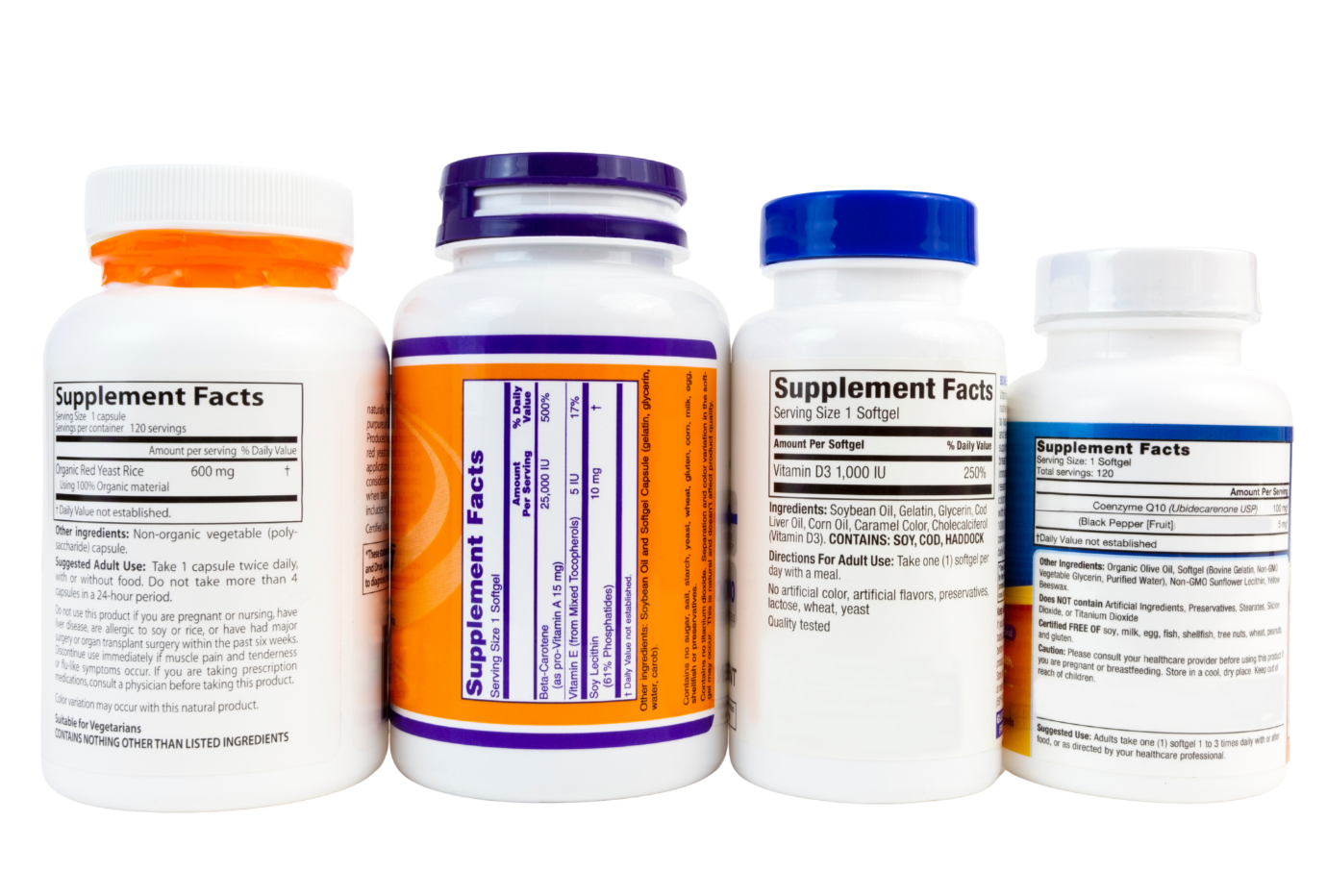


Date: 20 Sep 2025
The optimal timing for taking vitamins and supplements depends primarily on the specific vitamins you are using, which is the first question to consider. Vitamins are not all made equal. Furthermore, most people use the term "vitamins" to refer to micronutrients that are classified as both vitamins and minerals.
To optimize their absorption, you should take some of them with a meal in the morning. The best time to take others is in the evening, right before bed.

B-complex vitamins represent a group of eight water-soluble vitamins that play crucial roles in cellular metabolism and energy production. Approximately 6% of individuals aged 60 and older are vitamin B-12 deficient, with the prevalence increasing with age.
These vitamins are best taken in the morning because they support energy metabolism and can interfere with sleep patterns when consumed later in the day. Vitamin B12 is only found in foods from animal sources, making vegans and breastfed babies of vegan mothers particularly susceptible to deficiency.
Clinical studies demonstrate that B-complex supplementation can improve cognitive function, reduce fatigue, and support nervous system health, making morning consumption ideal for maximizing these energizing benefits throughout the day.
Vitamin C stands as one of the most powerful antioxidants available in supplement form, supporting immune function, collagen synthesis, and iron absorption enhancement.
This water-soluble vitamin should be taken in the morning to avoid potential sleep disruption, as it can have mild stimulating effects on the nervous system. Research demonstrates that consuming just 100 mg of vitamin C alongside an iron-rich meal can increase iron absorption by a remarkable 67%.
Vitamin C significantly boosts iron absorption, making it beneficial to consume these supplements together. The recommended daily allowance ranges from 75-90 mg for adults, though therapeutic doses up to 2000 mg are considered safe for most individuals.
Iron supplementation addresses one of the world's most common nutritional deficiencies, affecting approximately 25% of the global population, particularly women of reproductive age.
Morning consumption on an empty stomach optimizes iron absorption, as gastric acid production is typically higher during fasting states. Milk, calcium, and antacids can significantly interfere with iron absorption, while vitamin C promotes enhanced uptake.
Iron plays a fundamental role in oxygen transport through hemoglobin formation and supports cellular energy production via cytochrome enzyme systems.
However, iron supplementation can cause gastrointestinal side effects, including nausea, constipation, and stomach upset, in approximately 20-30% of users.

Magnesium serves as a cofactor in over 300 enzymatic reactions throughout the human body, making it essential for muscle function, nerve transmission, and bone health maintenance.
Evening supplementation proves optimal because magnesium possesses natural muscle-relaxing and calming properties that can promote better sleep quality.
Research indicates that approximately 50% of adults consume insufficient magnesium through their regular diet, primarily due to soil depletion and food processing methods.
Magnesium glycinate and magnesium citrate demonstrate superior absorption rates compared to magnesium oxide, which has a bioavailability of only 4%. Clinical studies reveal that magnesium supplementation can reduce the time needed to fall asleep by an average of 15-20 minutes and improve overall sleep quality scores.
Melatonin represents the body's primary sleep-regulating hormone, naturally produced by the pineal gland in response to darkness.
Supplemental melatonin should be taken 30-60 minutes before desired bedtime to align with the body's natural circadian rhythm patterns.
Melatonin proves particularly beneficial for individuals experiencing jet lag, shift work sleep disorders, or age-related sleep disturbances, as natural melatonin production declines with advancing age.
Calcium stands as the most abundant mineral in the human body, with 99% stored in bones and teeth, supporting structural integrity and various physiological processes.
Evening calcium supplementation may enhance absorption because stomach acid production continues during sleep, and reduced physical activity allows for optimal mineral uptake.
Calcium carbonate requires stomach acid for proper dissolution and should be taken with meals, while calcium citrate demonstrates superior absorption regardless of food intake.
However, excessive calcium intake through supplements may increase cardiovascular disease risk and kidney stone formation, emphasizing the importance of balanced supplementation.
Vitamin D functions more as a hormone than a traditional vitamin, regulating calcium absorption, immune system function, and gene expression in over 200 different tissues.
While vitamin D can be taken at any time of day, evening consumption may be preferred for consistency and to avoid potential interference with other morning supplements.
Vitamin D3 (cholecalciferol) demonstrates superior bioavailability compared to vitamin D2 (ergocalciferol), raising blood levels approximately 70% more effectively.
Vitamin D supplementation requires concurrent fat intake for optimal absorption, as this fat-soluble vitamin depends on bile acid production for intestinal uptake.

Fat-soluble vitamins require dietary fat for proper absorption and transport throughout the body, making meal timing crucial for optimal bioavailability.
These vitamins accumulate in fatty tissues and the liver, providing longer-lasting effects compared to water-soluble vitamins but also increasing the potential for toxicity with excessive intake.
Vitamin A supports vision, immune function, and cellular differentiation, with recommended daily allowances ranging from 700-900 micrograms RAE (retinol activity equivalents) for adults.
Vitamin E functions as a powerful antioxidant, protecting cell membranes from oxidative damage, with clinical studies demonstrating benefits for cardiovascular health and cognitive function.
Vitamin K plays essential roles in blood clotting and bone metabolism, existing in two primary forms: K1 (phylloquinone) from plant sources and K2 (menaquinones) from bacterial fermentation.
Vitamin D is needed for immune function, bone health, cellular growth, and more. More than 1 billion people worldwide are deficient in this important nutrient. Vitamin D can be taken at any time of day, and most of these supplements should be taken with fat-containing meals or snacks to ensure optimal absorption.
Absorption rates for fat-soluble vitamins can increase by 300-500% when consumed with meals containing at least 5-10 grams of dietary fat.
Multivitamin supplements provide a convenient method for addressing multiple nutritional gaps simultaneously, though their effectiveness depends significantly on formulation quality and timing of consumption.
Taking multivitamins with meals reduces the likelihood of gastrointestinal upset and enhances the absorption of fat-soluble components while providing the necessary cofactors for optimal nutrient utilization.
High-quality multivitamins should contain active forms of nutrients such as methylcobalamin (B12), pyridoxal-5-phosphate (B6), and mixed tocopherols (vitamin E) rather than synthetic analogues with reduced bioactivity.
Omega-3 fatty acids, particularly EPA (eicosapentaenoic acid) and DHA (docosahexaenoic acid), provide powerful anti-inflammatory effects and support cardiovascular, cognitive, and joint health throughout the body.
Omega-3 fatty acids are essential nutrients that may support heart health, with fatty fish, flaxseed, and chia seeds serving as excellent dietary sources.
Taking fish oil supplements with meals significantly reduces the fishy aftertaste and gastrointestinal upset that affects approximately 15-20% of users when consumed on an empty stomach.
Probiotic supplements contain beneficial bacteria strains that support digestive health, immune function, and potentially mental well-being through the gut-brain axis connection.
Consuming probiotics with meals protects from harsh stomach acid, allowing higher survival rates of beneficial bacteria during transit to the large intestine, where colonization occurs.
The human gut microbiome contains approximately 100 trillion bacterial cells representing over 1000 different species, with probiotic supplementation helping maintain optimal microbial balance.
Zinc functions as an essential trace mineral supporting immune system function, wound healing, protein synthesis, and DNA formation throughout the body.
Taking zinc supplements with meals reduces the gastric irritation and nausea that affects approximately 25% of individuals when consumed on an empty stomach.
Zinc deficiency affects an estimated 17% of the global population, with symptoms including impaired immune function, delayed wound healing, hair loss, and altered taste sensation.
Zinc competes with copper and iron for absorption, necessitating balanced supplementation to prevent induced deficiencies of these related minerals.
Different zinc forms exhibit varying absorption rates, with zinc picolinate and zinc gluconate demonstrating superior bioavailability compared to zinc oxide, which has poor solubility in gastric conditions.
Turmeric contains curcumin, a powerful polyphenolic compound with potent anti-inflammatory and antioxidant properties that have been extensively studied for various health applications.
Consuming turmeric supplements with meals containing black pepper (piperine) can increase curcumin absorption by up to 2000% due to enhanced bioavailability and reduced hepatic metabolism.
Turmeric supplements may interact with anticoagulant medications, diabetes medications, and chemotherapy drugs, requiring consultation with healthcare providers before initiation.
To understand supplement timing, it’s important to know how absorption works. Nutrients enter your body through the digestive system, but the rate of absorption depends on:
Knowing these basics helps you avoid wasting money on supplements that never get fully absorbed.

Supplements are not “one-size-fits-all.” Children and adults have different needs based on age, growth, and lifestyle. Let’s look at the best options, all available at Pharmily Kenya:
Vitabiotics Wellman Plus Omega-3 6 9 Capsules - Vitabiotics Wellman Plus Omega-3-6-9 Capsules is a scientifically formulated supplement designed to support the overall health and well-being of men. This dual-pack system combines 28 multivitamin tablets with 28 omega-3-6-9 capsules, offering a complete solution to meet the nutritional needs of active lifestyles.
Vitabiotics Wellwoman Omega Plus - This is a specialized supplement designed to meet the unique nutritional needs of women. It combines a comprehensive blend of vitamins, minerals, and essential fatty acids to support overall health and well-being.
Shop now at Pharmily Supplements & Vitamins and take the first step towards better health and wellness today!
Consistency in supplement timing proves more crucial than achieving perfect adherence to specific recommendations. Individual factors such as existing medical conditions, medication interactions, digestive sensitivity, and personal schedules should guide final timing decisions. Regular consultation with qualified healthcare providers ensures safe and effective supplementation protocols, particularly when combining multiple supplements or addressing specific health concerns through targeted nutritional interventions.
1. Is it better to take supplements in the morning or at night?
It depends on the supplement. Energy-boosting vitamins (like B-complex) are better in the morning, while calming ones (like magnesium) are best in the evening.
2. Can you take multiple supplements at the same time?
Yes, but you must be careful. For example, calcium and iron compete for absorption, so they should be taken at different times.
3. Should supplements be taken on an empty stomach?
Only water-soluble vitamins can be taken on an empty stomach. Fat-soluble vitamins (A, D, E, K) need to be taken with meals that contain healthy fats.
4. Do children really need supplements?
In most cases, children can get nutrients from a balanced diet, but supplements like omega-3 and vitamin D can help fill nutritional gaps. Always consult a doctor before starting.